“But I know also that still more interesting discoveries will be made that I have not the imagination to describe – and I am awaiting them, full of curiosity and enthusiasm.”
Linus Pauling
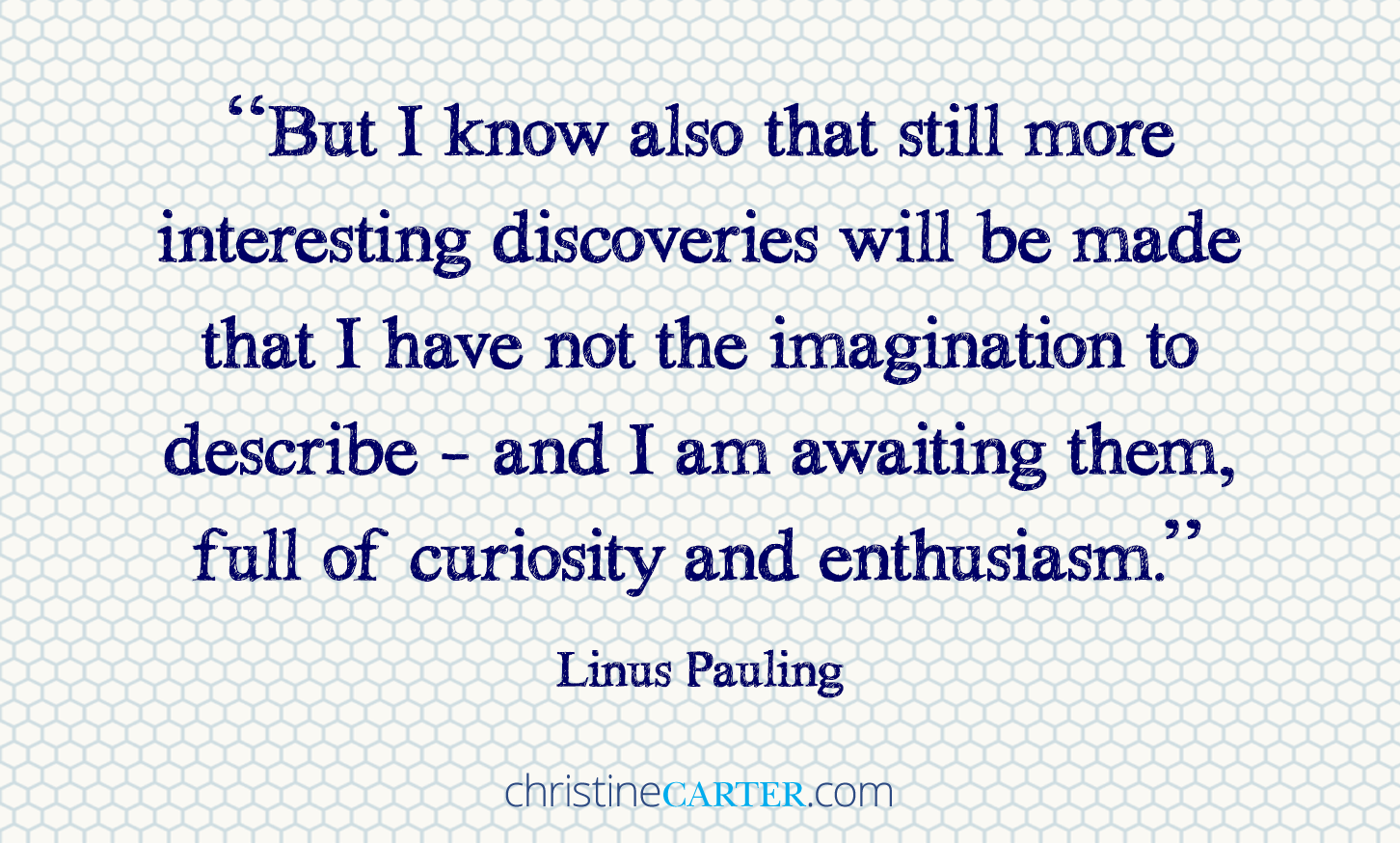

“But I know also that still more interesting discoveries will be made that I have not the imagination to describe – and I am awaiting them, full of curiosity and enthusiasm.”
Linus Pauling
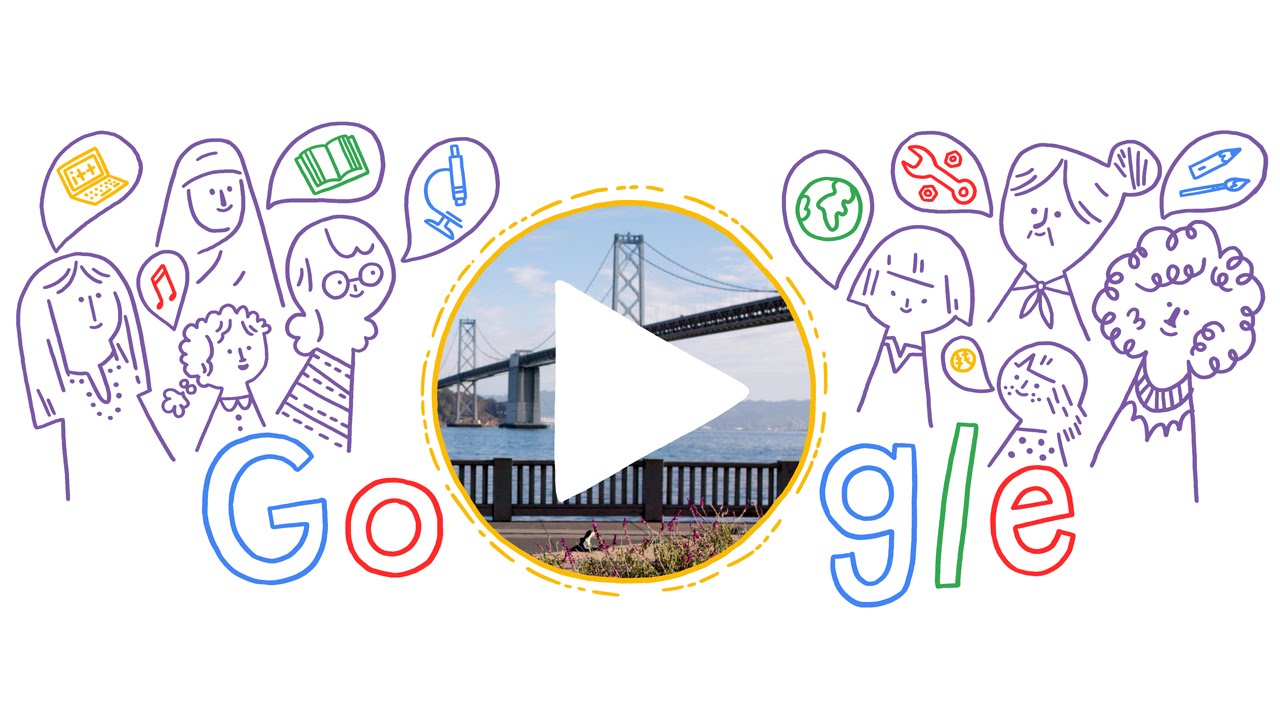
Such a lovely tribute to dreaming big. I love that this International Women’s Day Doodle includes women of accomplishment — Jane Goodall and Malala Yousafzai — who continue to strive. #oneDayIwill
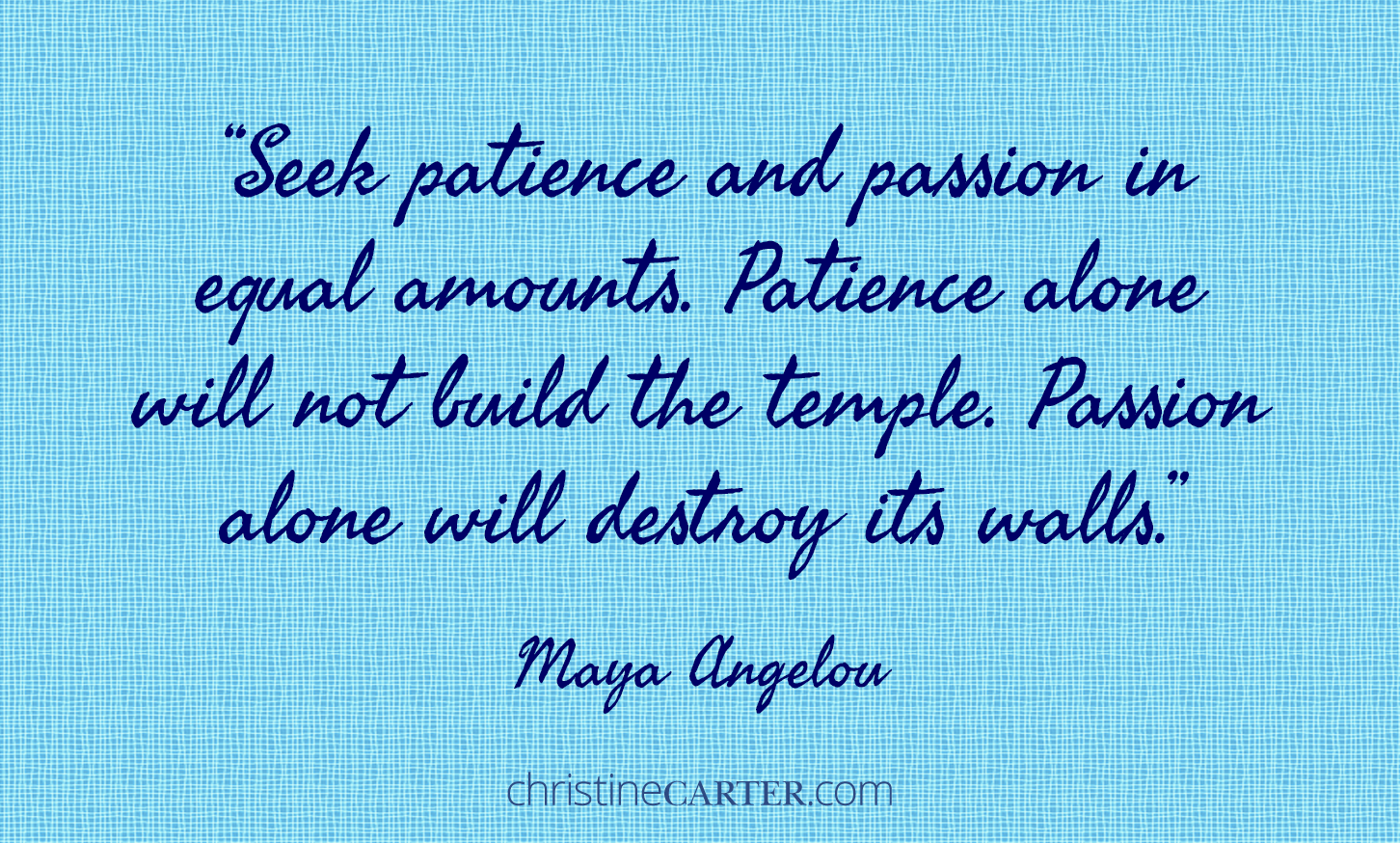
“Seek patience and passion in equal amounts. Patience alone will not build the temple. Passion alone will destroy its walls.” Maya Angelou
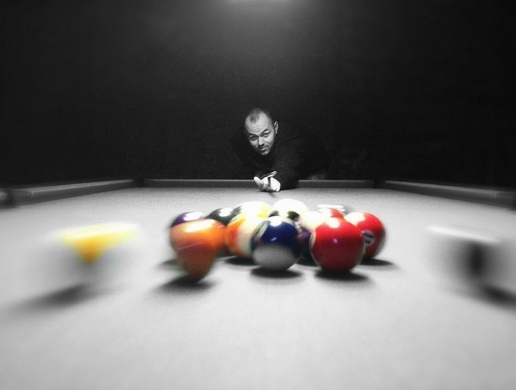
All our talk and worry about “work-life balance” is such a bunch of baloney.
I don’t mean to be depressing, but you will never find “balance” between your work and your personal life. That very idea hinges on an implicit belief that there is some perfect ratio between time spent on work (and work-like activities, like checking your email) and time spent on everything else (like sleeping, or eating your lunch away from your desk, or helping your kids with their homework).
Your work and your personal life do not amount to a zero-sum game, where more of one means you’re compromising the other. In fact, the quality of your work and your productivity — your ability to create something of value and meaning for yourself and for others–is utterly dependent on the quality of your personal life.
How happy you are profoundly influences how well you do your job. Reams of research shows beyond a shadow of a doubt that what we do outside of work thoroughly influences the energy, motivation, focus, creativity, persistence, insight, and raw intellectual power we bring to a given project or task at work.
The better your personal life is, the higher your potential to do great work.
I can hear the war cries from Silicon Valley and Wall Street now. “But no one in tech or at a start-up or who is brokering a billion dollar deal has a life!!! And THOSE people are rich and successful!!” you protest.
Hah. While those professions are certainly rigged so that the [mostly male] people at the top take home more money, their success is deeply subjective. Are they wealthy in the things that matter to you? Brigid Shulte reminds us to “remember that the wolves of Wall Street bragging about those long hours at the office got us into a global financial crisis, and that 95 percent of startups fail.”
Our sense that the most successful and productive people –“ideal workers”– put in an insane number of hours is just wrong. But what does the real “ideal worker” ACTUALLY look like?I’ve been pondering this question for five or six years now, and I’ve come to see that the real “ideal worker” has seven core qualities or skills. Read about them here, in this Medium post.
The search for the elusive ideal work-life balance is futile. You’re much better off putting effort into finding your flow. Need help? Check out my latest eCourse: The Science of Finding Your Flow (launching this Spring). If you order this eCourse now, you’ll get a FREE hardcover copy of my book The Sweet Spot. Click here to learn more about The Science of Finding Flow eCourse.
Photo by Michal Koralewski.

All our talk and worry about “work-life balance” is such a bunch of baloney.
I don’t mean to be depressing, but you will never find “balance” between your work and your personal life. That very idea hinges on an implicit belief that there is some perfect ratio between time spent on work (and work-like activities, like checking your email) and time spent on everything else (like sleeping, or eating your lunch away from your desk, or helping your kids with their homework).
Your work and your personal life do not amount to a zero-sum game, where more of one means you’re compromising the other. In fact, the quality of your work and your productivity–your ability to create something of value and meaning for yourself and for others–is utterly dependent on the quality of your personal life.
How happy you are profoundly influences how well you do your job. Reams of research shows beyond a shadow of a doubt that what we do outside of work thoroughly influences the energy, motivation, focus, creativity, persistence, insight, and raw intellectual power we bring to a given project or task at work. The better your personal life is, the higher your potential to do great work.
I can hear the war cries from Silicon Valley and Wall Street now. “But no one in tech or at a start-up or who is brokering a billion dollar deal has a life!!! And THOSE people are rich and successful!!” you protest.
Hah. While those professions are certainly rigged so that the [mostly male] people at the top take home more money, their success is deeply subjective. Are they wealthy in the things that matter to you? Brigid Shulte reminds us to “remember that the wolves of Wall Street bragging about those long hours at the office got us into a global financial crisis, and that 95 percent of startups fail.”
Our sense that the most successful and productive people –“ideal workers”– put in an insane number of hours is just wrong. But what does the real “ideal worker” ACTUALLY look like?
I’ve been pondering this question for five or six years now, and I’ve come to see that the real ideal worker has seven core qualities or skills, listed below. But before I lay them out for you, let’s remember: Those of us who cultivate these qualities are more than workers, of course.
We are the joyful people who are working toward fulfilling our potential for creativity, productivity, intelligence, and–most importantly–meaning, fulfillment, and connection in our lives. We are the people who actually enjoy the lives that we’ve worked so hard to create. We also happen to be very good at our jobs.
We can attribute our happiness and success at work to the following seven skills and abilities:
The “real ideal worker” is not a mythical, unattainable ideal. There are successful people all around you who aren’t working themselves to the brink of exhaustion and burnout. We aren’t perfect, but we’re dedicated to seeking the most joy possible out of our lives, including our lives at work. We are the people who know how to find flow. Personally, I’m hoping you will join our tribe. Aren’t you ready to reset your vision for what you want for yourself?
If you enjoyed this article, I encourage you to join me for my free, 20-minute webinar, 5 Ways to Get More Done in Less Time. In this webinar, I share my top five science-based productivity tips that are all designed to help you create more time in your life and schedule for the things that matter most to you. Sign up or learn more here.
If you didn’t think a laundry soap ad could make you cry… guess again.
Even if it is just marketing, this commercial makes a important point. Laundry, and all of the other important tasks that keep a house running smoothly, is work that needs to be shared. #ShareTheLoad
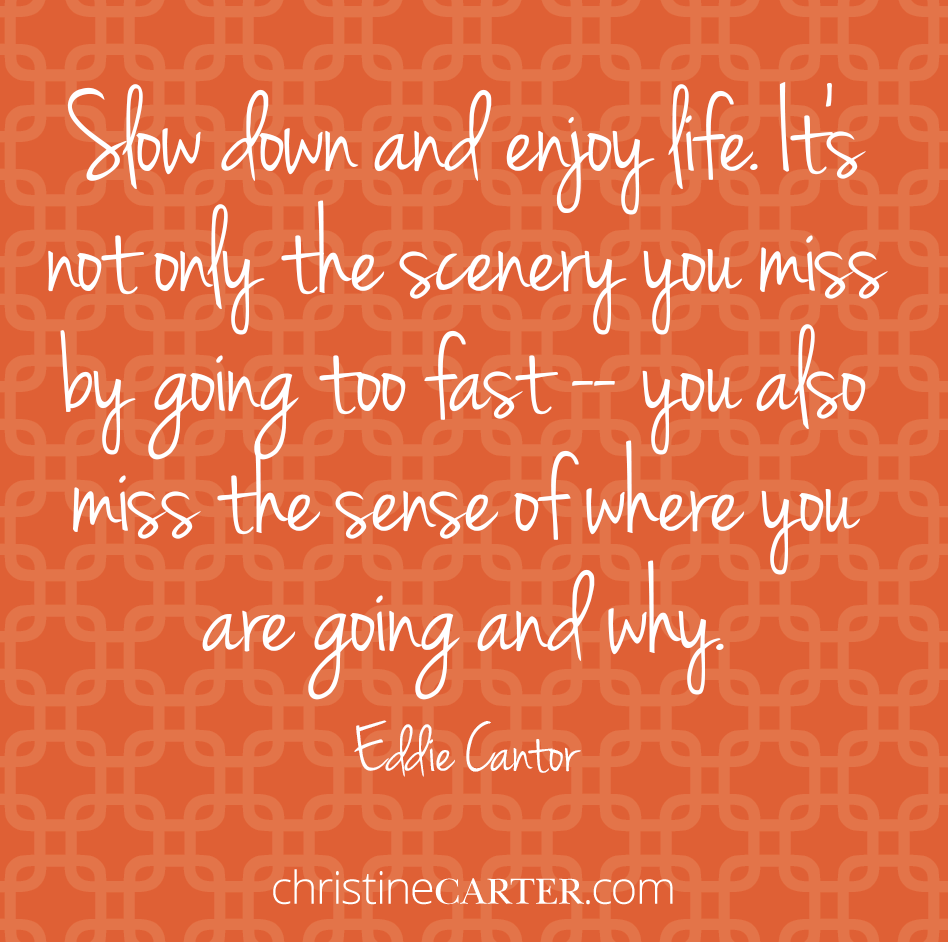
“Slow down and enjoy life. It’s not only the scenery you miss by going too fast — you also miss the sense of where you are going and why.” — Eddie Cantor
Are you feeling starved for time? Impatient?

New research shows that experiencing awe can make us feel more satisfied with our lives, more patient, more willing to help others, and — importantly, in our crazy busy lives — as though we have time to spare.
Awe is one of those quiet positive emotions we don’t tend to think much about. A flourishing life is fed by positive emotions that are global in nature, like awe and elevation and inspiration. Researchers describe it as that “feeling we get when we come across something so strikingly vast in number, scope, or complexity that it alters the way we understand the world,” as Stacey Kennelly explains in this Greater Good article about awe.
In case you missed the headline here: Awe can make you feel less pressed for time and less impatient. How cool (and ironic!) is that?
You can awe yourself with a grand landscape, or by reading about a mind-expanding theory, or by contemplating something that changes the way you think about the world. Researchers induce awe in volunteers fairly simply by showing them video clips of people facing awesome things like waterfalls and whales or by having them write about something that was vast and altered their perception of the world.
Once you find sources of inspiration and awe, connect to them regularly. If it is your church, make sure you show up on Sunday. If it is your study group, stay involved. If it is nature, schedule regular hikes. If it is a guided meditation, listen daily. You get the point.
So make time to expose yourself to something truly awesome. Visit a spectacular beach or vista point. Watch a sunset or sunrise, or hold a new baby, or watch a nature video (like this one).
What place or experience makes you awe-struck? Share in the comments here!
Photo by Vern via flickr

Please join me for a free webinar. I’ll discuss how to:
What makes us happy and healthy as we go through life? This inspiring TED talk discusses some key findings from the longest running study of human development, The Harvard Grant Study. The clearest finding is “Good relationships keep us happier and healthier.”